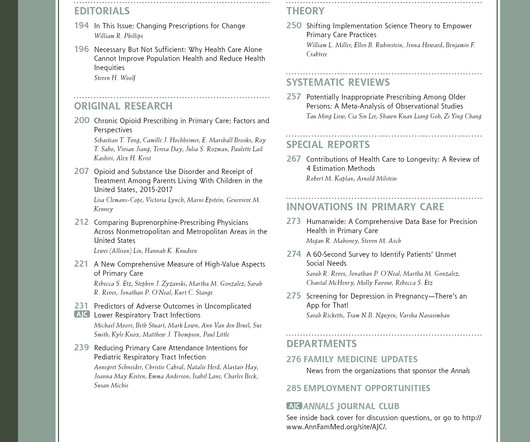Development of a Multidisciplinary Clinic for the Treatment of Obesity in a Canadian University Family Medicine Group (U-FMG) [Obesity, exercise and nutrition]
Annals of Family Medicine
NOVEMBER 20, 2024
of Canadians were at greater risk of chronic diseases due to their BMI, including type 2 diabetes, atherosclerosis, and hypertension. Follow-up frequency, ranging from weekly to monthly for up to 12 months, is tailored to individual needs. Context In 2018, 63.1%
















Let's personalize your content